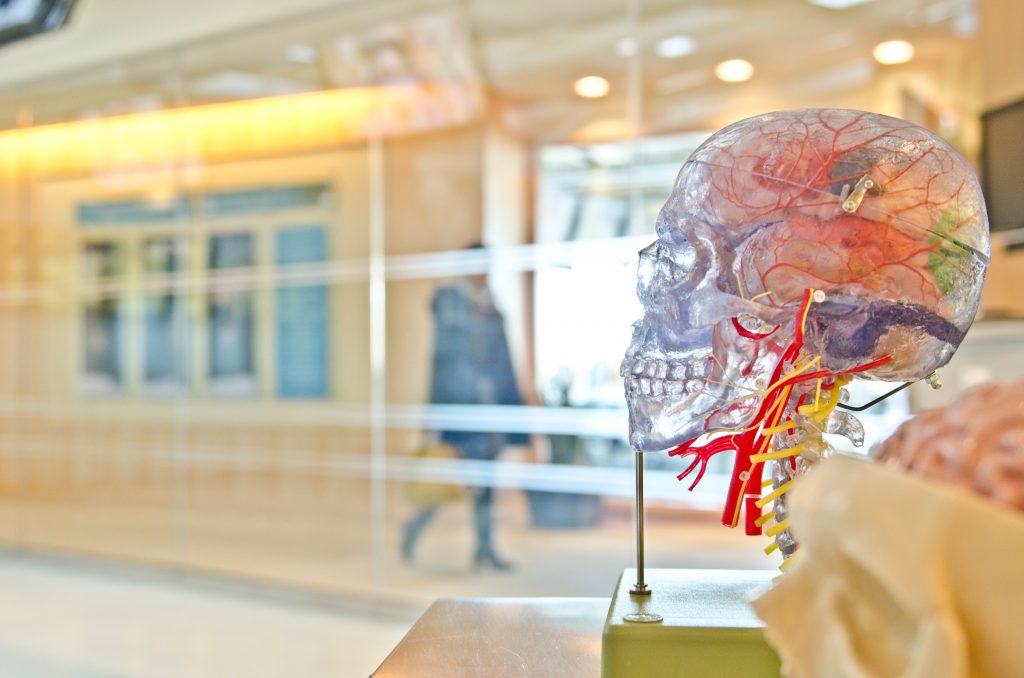Today we continue with more brief personal reflections written for Professor Curtis Gruenler’s Literary Theory course. Aine O’Connor and Taylor Lombard illuminate how their study of history and biology (respectively) has intersected with their literary learning.

Aine O’Connor, “Miracle of Miracles: Storytelling as Power”
I am often asked, especially now in my senior year, what I have learned from my two majors. The answer is more complicated than the questioner perceives. Lately, my response has been that history taught me storytelling and English taught me everything else.
Often, the questioner seems confused by this answer. I think they believe the two should be switched—that English taught me the meaning of a good story and history taught me about the “real world.” Of course, both majors offer a healthy mix of things to learn about. English, though, magnifies the glory of humanity’s wonder in ways I never could’ve imagined when I decided to pursue the field as a major.
Within Plato’s Republic, the character of Socrates tells his companions: “everything that fable-tellers or poets say is a narrative of past or present or future” (Plato 392d). This quote gets at a critical tenet of learning both English and history: nothing and nobody exists in a vacuum. Every single book included in any curriculum came from a contextual background. We, too, are made up of pieces of other people, pieces of our past that have (miracle of miracles) bound together to create us.
Humans and books have a lot in common. The best of both help us realize that we are not alone, and that we came from somewhere and are going somewhere else. The English classes I have enjoyed the most are the ones designed to include literature that stuns me in its relatability. Complex characters invite recognition and appreciation.
I carry many characters within me. Some have been tagging along in my life since I was very young. The first fictional character I felt close to was Roald Dahl’s Matilda, a quiet yet plucky child who read voraciously, loved school, and firmly believed in the power of self-advocacy to make a difference. As a quiet yet plucky child who read voraciously, loved school, and desperately wanted to use my voice to change something (not my parents—unlike Matilda, my parents are wonderful), seeing a character who felt so much like me was a bolt of lightning.

My adult self knows just how lucky I was to find a character who looked and felt like me at such a young age. Much of my research in English throughout my time at Hope has been working towards a world where all children find a character to whom they can relate, whether in race, socioeconomic status, sexual identity, ability, ethnic background, or any other identifier. For so many generations, a huge portion of humanity was left out of classic literature, or portrayed solely as a stereotype. Curricula can and should change to reflect the diversity of the human experience; I’ve been enormously grateful to have been on the receiving end of many these shifting curricula at Hope, from African American literature to Big Read books to disability YA novels.
Reading books across so many different genres is a gift. While many of my close friends struggle to stay motivated in majors that are essentially a means to an end, I get to do and read what I love every single day. That statement does not imply that my majors are easy. No, all it means is that my struggle to understand, to learn, and to grow is a beautiful conversation amongst different times, stories, cultures, and personalities. Books have taught me that I am miraculous, and, far more importantly, they have taught me that everyone else is miraculous, too. True joy is reading literature that motivates us to wonder, to marvel at the complex world around us that holds more beauty than darkness.
Taylor Lombard, “The Study of Life”
My study of English literature thus far has spanned genres, time periods, and cultures. Throughout higher education, my studies have included analysis of novels, memoirs, poems, journals, and short stories. Though primarily focused on British Literature and 20th Century American Literature, I have also explored the cultures and perspectives of nations around the world during courses focused on global literature. From these various readings, I learned more about myself, others, and the world around me.
The decision to study English was, for me, less of a decision than a consequence of my interests. My desire to understand people led me to appreciate any and all literature responding to the human condition. As a Biology major, I am familiar with studying the human person through a scientific lens. While science helps us explore the human anatomy, literature serves as a medium to explore the complexities of the human mind and soul.

In high school, I began to appreciate the role literature plays in the exploration of humanity: why people make certain decisions, how desires lead individuals to achieve great feats, why pain drives others to tragic ends, and when a greater purpose has the power to bring people together. I am drawn to English because its domain of influence is not singular, but rather transcends across all areas of life.
In studying English, I hope to improve my critical reasoning skills, explore the human psyche, and broaden my understanding of the world as a whole. Already, the skills I have developed in English courses—how to analyze texts, dissect layered meanings, and interpret nuances—have transferred outside the classroom to positively influence the ways I approach scientific literature, problem solving, and conversations. I hope to further develop cognitive thinking skills as I prepare to enter the medical field. As a health professional, the ability to think in a critical and multidimensional fashion will better serve patients in need.
My approach to studying literature was greatly influenced by my instructors. Claudia Taniguchi challenged me to question an author’s decisions and draw conclusions about humanity from the desires of characters. Dr. Rhoda Burton invited me to apply literary theory for a more in-depth analysis. I was encouraged to approach texts with different perspectives—focusing on content, gender, historical context, or the human psyche—to reach a richer understanding of both the purpose and meaning. While Taniguchi fostered the development my analytical skills, Burton provided me with the knowledge and vocabulary to more accurately describe the approach with which I was analyzing texts. As my studies continue, I look forward to further developing my skills and enhancing my vocabulary.
Literature has played a substantial role in my overall education, despite my dedication to the sciences. The tools developed in English courses, such as the ability to analyze texts, ponder deeper meanings, and grapple with ambiguity, have contributed to my success as a student. When the scientific world becomes too rigid and confined, English allows me to escape to a place where creativity and imagination are welcome, and the exploration of higher thinking is encouraged.



